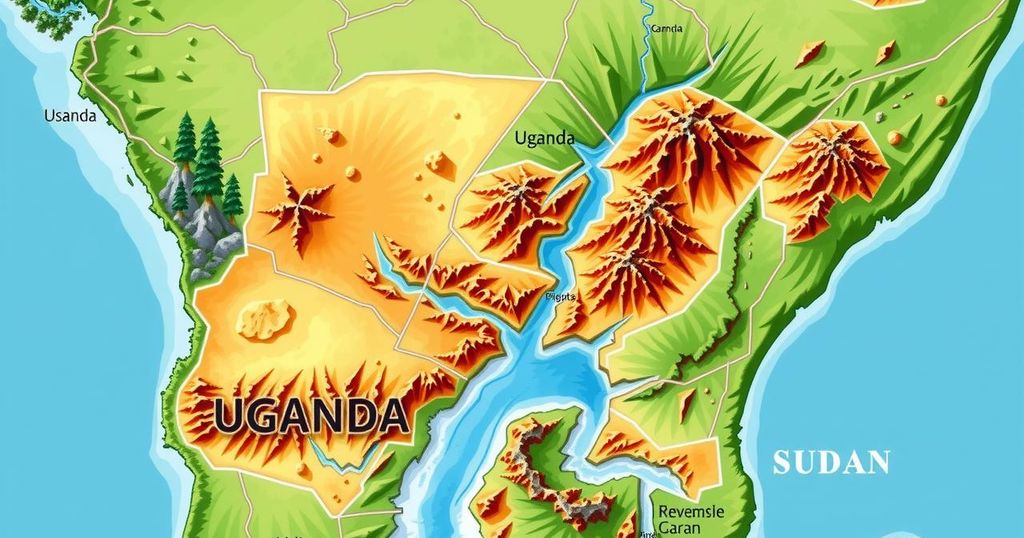Examining Uganda’s Complex Role in South Sudan’s Turmoil

Uganda’s involvement in South Sudan reflects deep governance issues, with reliance on its military tainting perceptions of South Sudan’s sovereignty. The deployment of Ugandan forces to support government factions has led to allegations of human rights violations and a diminishing reputation for the Uganda People’s Defence Force. To address these concerns, both countries must focus on mediation and strengthening domestic capacities rather than external military dependencies.
Uganda’s involvement in South Sudan has sparked significant debate surrounding governance and military interventions. The uncertainty regarding Ugandan troop deployments reveals deep-seated issues of transparency that potentially escalate existing conflicts and provoke regional tensions, highlighting President Yoweri Museveni’s contentious support of President Salva Kiir.
The reliance of South Sudan on foreign military assistance, particularly from Uganda, raises concerns about national sovereignty and military capability. Such dependency undermines perceptions of a strong national army, prompting neighboring countries to question South Sudan’s ability to maintain its territorial integrity and thereby embarks on exploiting its vulnerabilities, leading to broader regional instability.
Historically, Uganda’s support in South Sudan’s liberation struggles fostered goodwill, as many found refuge there. However, relations have soured since 2013 with the deployment of Ugandan soldiers alleged to have committed human rights violations, leading to perceptions that Uganda now backs an oppressive government detached from the populace’s needs.
The history of Ugandan military involvement illustrates a troubling trend: each time tensions rise between the South Sudanese leadership factions, Kiir resorts to purchasing Ugandan military assistance. This not only portrays Uganda as an unreliable actor in the region but also escalates internal tensions, threatening overall stability while sidelining genuine peace efforts.
The once-respected Uganda People’s Defence Force (UPDF) risks reputational decline as its actions appear to commodify military support for profit, casting the army as mercenaries rather than a stabilizing force. Such a transformation threatens to diminish international support, which is essential for the UPDF’s operational capability.
To counter these dynamics, it is vital for the South Sudanese government to prioritize investing in its military forces rather than financing foreign operations. Genuine liberation must stem from domestic efforts without compromising national sovereignty under foreign influence. The international community, including the United Nations and African Union, must urge Uganda to cease its military incursions while redirecting focus toward authentic peace mediation.
Cooperative relations between South Sudan and Uganda should be grounded in mutual respect and autonomy. As both nations share a complex historical context, it is imperative that Uganda refrains from policies that portray it as an aggressor rather than a supportive ally, preserving the dignity and self-determination of the South Sudanese people.
Uganda’s military presence in South Sudan has detrimental implications for both nations, fostering instability rather than peace. The interdependence on foreign military support undermines South Sudan’s sovereignty, while Uganda risks its own international credibility in the process. A constructive path forward requires Uganda to prioritize mediation and support for South Sudan’s autonomy, reaffirming the historical bonds of solidarity without compromising national integrity. Thus, true progress lies in fostering a shared commitment to peaceful coexistence and self-determination.
Original Source: www.independent.co.ug








